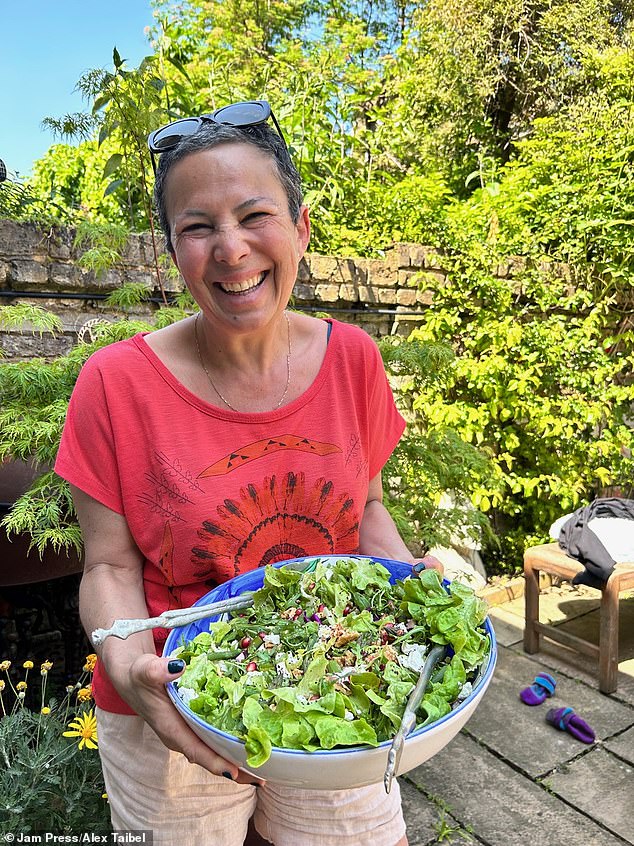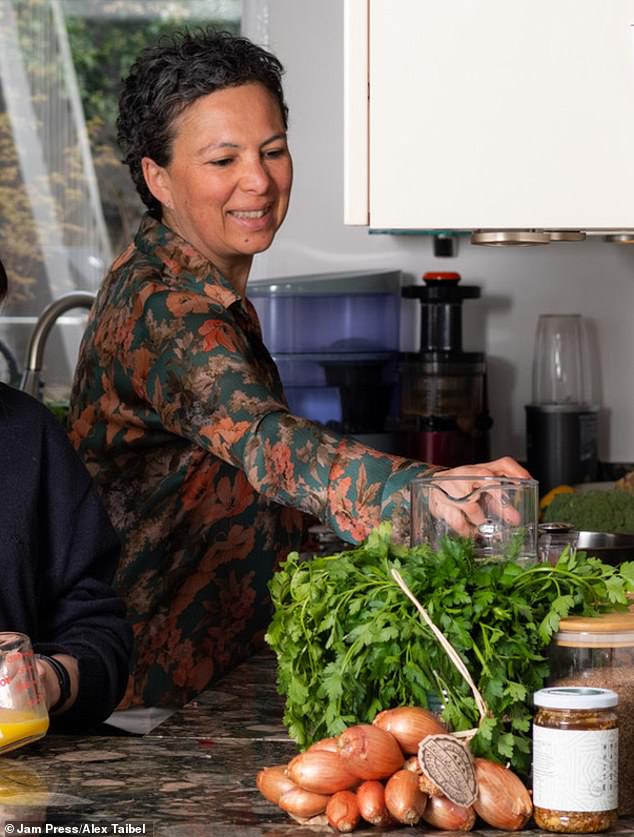An expert nutritional therapist has revealed the popular snacks parents think are healthy – but shouldn’t actually be fed to kids.
With the summer holidays in full swing, families will be scrambling to find activities to occupy their little ones.
And it’s no secret that giving them something to eat can fill the gap for a while.
But Amber Silverman is urging parents to be careful when choosing a healthy snack, as what might seem nutritious is actually doing children more harm than good.
‘One of the most common things I hear from parents is: “I honestly thought that was healthy,” and it’s completely understandable,’ the nutritional therapist, from London, told NeedToKnow recently.
‘Supermarkets are full of products that look wholesome, often plastered with phrases like “no added sugar” or “made with real fruit,”‘ she warned.
‘But once you take a closer look, the reality isn’t always quite so rosy.’
Here are the most common lunchbox and cupboard offenders.

Expert nutritional therapist Amber Silverman has revealed the popular snacks parents think are healthy – but shouldn’t actually be fed to kids
Fruit Snacks
Amber, a mom-of-two, said that labeling on fruit snacks often states that ‘real fruit’ is involved, but it can be extremely misleading.
She explained: They’re usually little more than processed sugar, syrup, and flavorings.
‘Even when fruit purée is listed as an ingredient, it’s stripped of the fiber and nutrients you’d get from eating real fruit.’
And the same goes for fruit pouches, which are better than ultra-processed snacks, but still aren’t as good as the real deal.
Smoothies and juices
Amber, 54, said that while smoothies are a great way to get kids’ five-a-day in, they’re only beneficial if made from scratch.
She warned that bottled versions often contain fruit concentrates, sweetened yogurt, or added sugars – and are surprisingly high in calories.

Amber urged parents to be careful when choosing a healthy snack, as what might seem nutritious is actually doing them more harm than good
And juice is no better. Amber added: ‘Even the pure kind is still very high in natural sugars and lacks the fiber that slows down sugar absorption in whole fruit.
‘It’s easy to forget that one small carton of juice might contain the equivalent of sugar of several pieces of fruit.
‘Better to stick with water most of the time and keep juice as an occasional treat – or just eat an orange.’
Flavored Yogurts
Amber said that yogurts in little tubes or pots are usually marketed towards children, and can be enjoyed as part of a healthy diet. But there’s little benefit for your tot.
She dished: ‘Low-fat versions are particularly sneaky, as the fat is usually replaced with added sugar to keep them tasting good.
‘A better option? Go for plain, full-fat yogurt and stir in some fresh fruit yourself.’
Granola and Cereals
Oats, nuts, and sometimes a bit of dried fruit may seem like a winner, but what’s really hiding in the ingredients?
Amber said: ‘[They’re often] held together by glucose syrup or other sweeteners and can contain just as much sugar as a chocolate bar.

She warned against fruit snacks, smoothies, juices, veggie straws, and chips
‘Not ideal if you’re after something genuinely nourishing that’ll keep kids going through the day.
‘[And while] cereal is quick and convenient, even the ones labelled with ‘whole grain’ or ‘fortified with vitamins’ can be high in sugar and low in fibre.
‘They may give a short burst of energy, but that’s usually followed by a mid-morning crash – and a grumpy, hungry child asking for snacks.’
Veggie Straws and Chips
If the phrase ‘veggie’ is used, it must be healthy, right? Wrong.
‘Sadly, not. They’re often made with potato starch and oil, with just a dusting of powdered vegetables for color,’ Amber explained.
‘Nutritionally, they’re not much better than ordinary crisps.’
Whole Wheat or Multigrain Crackers
Reaching for crackers might seem like a quick, tasty, and nutritional option to feed your tot when they’re hungry. But, like most foods, the labels are misleading.
Amber said: ‘Just because something has ‘whole wheat’ or ‘multigrain’ on the label doesn’t mean it’s automatically a healthier option.

‘Many of these snacks still contain refined flours, low-quality oils, and not much in the way of actual nutrients,’ she said
‘Many of these snacks still contain refined flours, low-quality oils, and not much in the way of actual nutrients.
‘If you’re buying crackers, check the label and look for ones made with 100% wholegrain and minimal added ingredients.’
Amber advised parents to opt for savory snacks over sweet – such as cheese, homemade hummus, edamame beans, and nuts and seeds.
She said eating refined sugars can be ‘detrimental’ to kids.
The mom continued: ‘It creates unstable blood sugar levels, where the highs and lows can have an adverse effect on behaviors.
‘Common symptoms of this would be irritability or anger, fatigue or lethargy, headaches, mood swings, and attention problems.
‘This can impact their learning at school and at home – and how they interact with people around them. Refined sugars are also linked to inflammation in the body, which in turn is linked to a diseased state.
‘In the medium to long-term, there may be impacts on immune function and other health concerns when refined sugars are consumed daily or very regularly.’
She also noted that refined sugars impact teeth, weight, and digestive health – which can also damage developing brains.
Since it has addictive qualities, these difficulties can last even into adulthood.
While it can feel overwhelming trying to make the right choices, she says the best method is to stick to real, whole foods and recognizable ingredients. And don’t be afraid to whip up simple meals from scratch.
She concluded, ‘Feeding your child isn’t about being perfect. It’s about balance, awareness, and building habits over time.
‘One less fruit snack and one more real apple might not seem like a big deal today, but over months and years, it adds up.’












